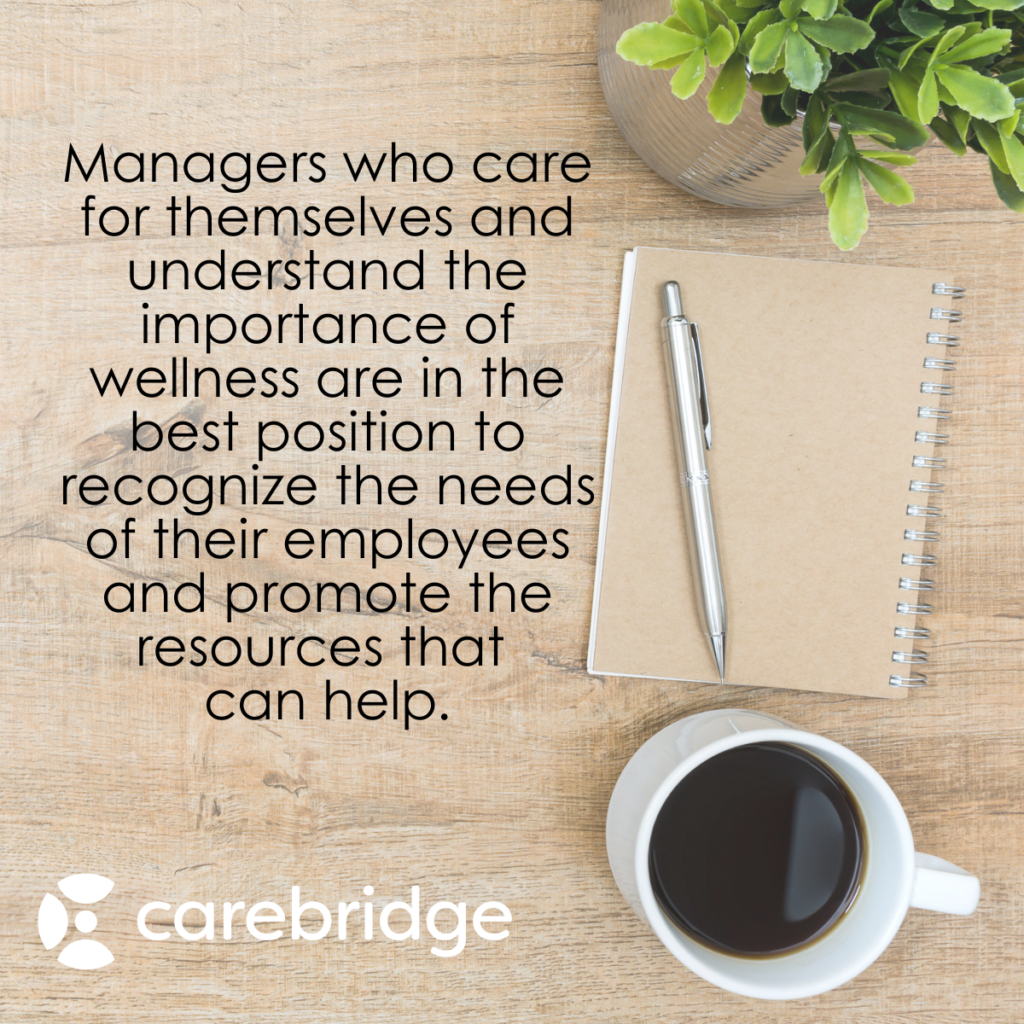How to Support Employees Who Become Caregivers
When employees become caregivers to aging relatives or children with a disability, they will inevitably go through an adjustment period. At first, they might take some time off to transition into their new role. The transition will continue as they return to work and learn how to balance their work and home responsibilities.
Managers who understand and anticipate their employee’s changing needs, priorities, and risks can be proactive in promoting that balance. With the right resources and support, your employees are more likely to be successful and avoid burnout in both their work and caregiving roles.
1 in 5 workers in the U.S. are also caregivers for ill or elderly adults, or children with a disability, according to Caregiving in the U.S., an AARP report.
Wellness Benefits Cover a Variety of Needs
As a manager or HR/Benefit Leader, you have the opportunity to support your employees who become caregivers by promoting a healthy work environment that empowers them to balance their home life with work responsibilities. This means offering flexibility and encouraging use of company wellness benefits.
Offer Flexibility for Caregiving
Caring for a loved one will never take place on a convenient after-hours schedule. When the care routine pushes into the workday, doctors have limited appointment times, and unexpected circumstances arise, your employee is generally duty-bound to their loved one’s needs first. Some compromise is usually necessary to ensure the organization’s needs are also being met.
Employees who know they have the flexibility to take personal calls, attend medical appointments, and adjust their hours will experience less stress at home and at work. This allows them to maintain a high level of productivity and quality in their work while being a present caregiver.
Present All Available Employee Caregiver Benefits
Without presuming your employee’s greatest challenges, it’s vital to make them aware of just how many resources are available. The benefit of working with an employee assistance program (EAP) like Carebridge is that the employee has access to a wide range of services with just a single phone call or tap on our mobile app.
Work-Life Services
Work-life counselors assess each individual’s needs, answer questions, and provide referrals to additional specialists. Through work-life counseling, employees can learn more about caregiving services, legal aid, financial advice, and personal support.
Mental Health Support
The new caregiving role can introduce mental health issues that have never surfaced before. This might be distressing, especially if the employee feels confused, panicked, or guilty over their thoughts and feelings. EAP mental health services provide immediate help and point the employee to qualified counselors.
Emotional Wellbeing
Becoming a caregiver requires lifestyle changes. This could be an opportunity for the employee to make many improvements in their emotional health. EAP benefits like life coaching, mindfulness, goal setting, and support groups facilitate the employee’s journey to becoming a strong, stable caregiver.
Protect and Respect Your Employee’s Privacy
There is a delicate boundary line between being proactive and being invasive in supporting your employee’s new role as caregiver. It’s important to navigate this line with care so that your employee does not feel threatened or exposed. Many individuals are protective of their personal lives outside of work and will not want to divulge information, even if it could lead to beneficial resources. Others may worry about being stigmatized if their loved one has a genetic condition, particularly if it is one that involves cognitive impairment. Still other employees may fear that your concern is a veiled warning that their work performance is under scrutiny.
You can’t force an employee to open up in response to your offer of support and resources. But what you can do is reinforce that you will always maintain confidentiality, that the EAP resources they pursue will be kept confidential, and that your genuine concern is for their personal wellbeing and work satisfaction.
One way to promote employee confidence that your intentions are positive is to maintain a supportive work culture. Mention EAP resources during staff meetings, promote trainings that may benefit your staff, and follow through on your commitment to work-life balance.
When employees see that your words match your actions, they will be more likely to trust you when they need specific support.
Carebridge Can Help
Managers who care for themselves and understand the importance of wellness are in the best position to recognize the needs of their employees and promote the wellness benefits that will help. Make sure you stay up to date on what programs are available through Carebridge EAP. Regularly visit our blog, attend relevant training programs, and use our resources to proactively support your own wellbeing and mental health as well.
Not a Carebridge member? Click here to request more information for your organization.
